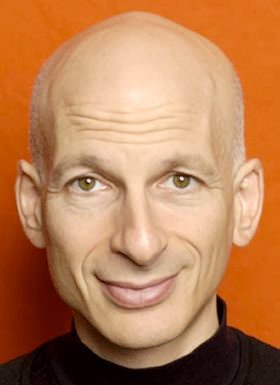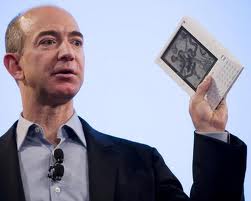One Dark Side of Publishing Changes
All changes, even the most longed for, have their melancholy; for what we leave behind us is part of ourselves; we must die to one life before we can enter another. (Anatole France)
I’m sometimes criticized as overly zealous about today’s shift in the publishing industry — away from print, paper, ink, trees, bricks and mortar production, retail, etc and toward digital, portable, shareable, multimodal storytelling alternatives — and it’s a fair criticism. But despite my enthusiasm for electronic publishing, I am also quite nostalgic/sympathetic when it comes to traditional publishing. For starts, I’m a big fan of print books. I appreciate the aesthetics of books, the psychology of books, the history of books. I love the smell of old books, the sense of color and abundance offered by shelf upon shelf of neatly stacked books. I love the visual narcotic of colorful coffee table books and the tactile joys of childrens’ books. I love scribbling notes in margins and dipping into the artifacts left by readers before me like a voyeur wandering through another’s diary. I love reading books in bed, in the bath, in the hammock, on a boat, and despite my enthusiam for the concept of electronic publishing I still haven’t made the leap to an e-reader. Audio books? I love them. eBooks? I’m still old school, aside from a few dabbles with vooks and quick gobbles via Project Gutenberg.
And then there’s the whole other concern of the people connected to the production and retail of print books… As Neil Postman points out, technological leaps forward always veil a darker, less positive side. One of those darker sides of the publishing evolution from print to electronic formats is the people whose educations, experience, livelihoods and fortunes are tied to the print publishing world. Jobs will be lost. Careers will become obsolete. People and communities will struggle.
The plant will cut down on the amount of paper it produces for the publishing sector.
“This is a strategic move,” Mr. Travers said. “We’ll still have a portion of that. That area of the market is oversupplied.”
The production of advertisements, a crucial market for Newton Falls paper, has declined as the recession has worn on. At the same time, technology including Amazon’s Kindle and Apple’s iPad — handheld devices that can display books, blogs and newspapers — is cutting into the traditional publishing market, Mr. Travers said.(Watertown Daily Times)
The ongoing impact to the music industry pales in comparison to what we can expect in the publishing industry. I get it. I lament it. I’m genuinely torn. But I also understand that time marches mercilessly, inevitably forward, and despite the ugly and painful evolution, the transition from print to electronic publishing offers a bounty of good. I’ve chosen to focus on the promise. Perhaps I need to slow down and reflect on the hurt… Thanks for the reminder, Doug Yu (aka @tourpro)!







 In 1935, Allen Lane was 32 and worked for The Bodley Head, which had been founded by his uncle. Returning from a weekend visiting Agatha Christie and her husband in the country, he had nothing to read and perused a railway bookstall. While looking at the dime novels, pulp fiction and expensive hardcovers, his little grey cells went to work, as Christie’s Hercule Poirot might put it, and he thought:
In 1935, Allen Lane was 32 and worked for The Bodley Head, which had been founded by his uncle. Returning from a weekend visiting Agatha Christie and her husband in the country, he had nothing to read and perused a railway bookstall. While looking at the dime novels, pulp fiction and expensive hardcovers, his little grey cells went to work, as Christie’s Hercule Poirot might put it, and he thought: 






